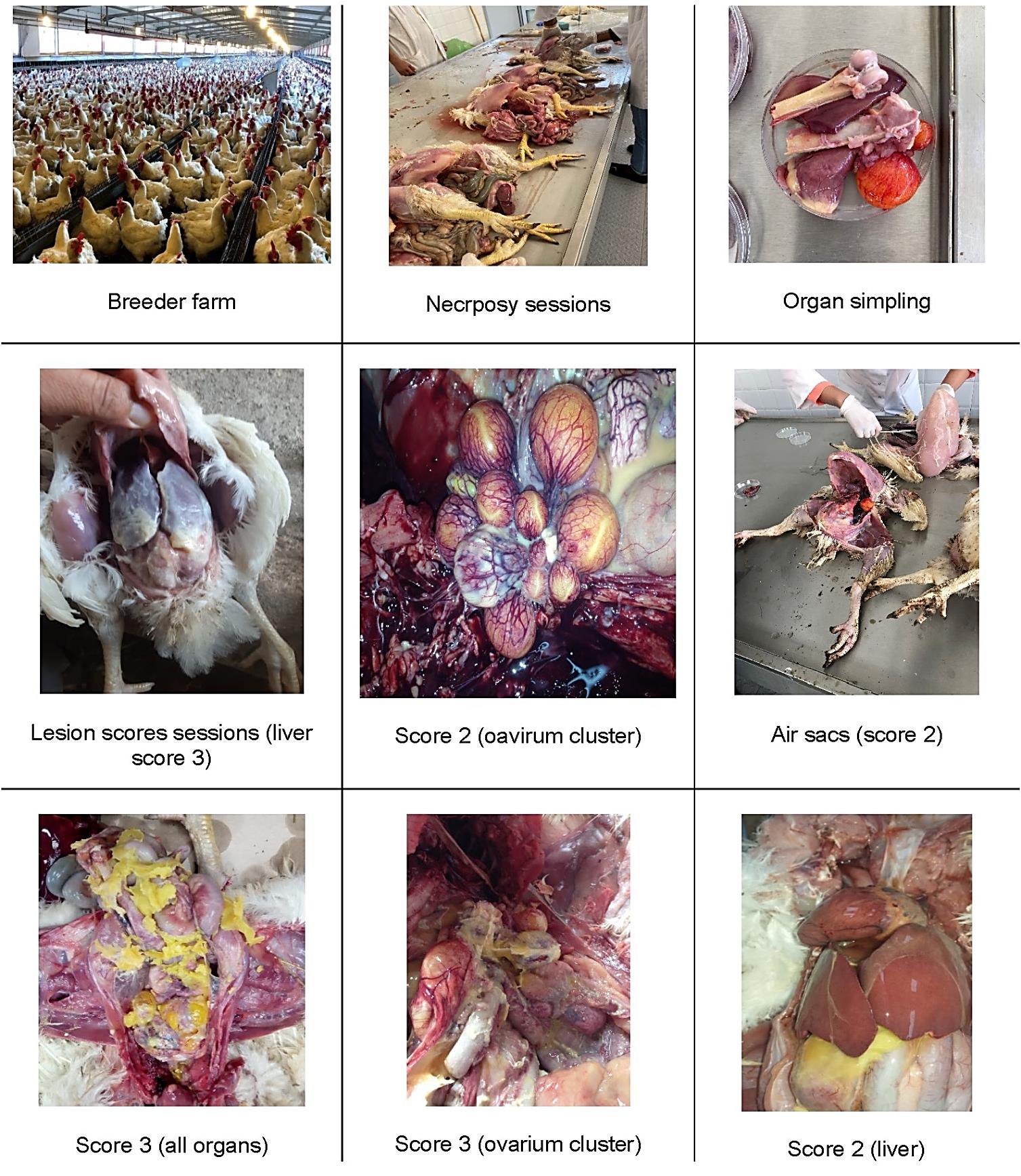Positive assessment of an autogenous vaccine against pathogenic Escherichia coli in broiler breeders and their progeny in Morocco
Authors: Lhoussaine Oubouyahia, Amal Essalah-Bennani, Ouafaa F. Fihri, Eric Badin, Hanan Balil, Eric Thibault, Hubert Gantelet and Saadia Nassik
Ger. J. Vet. Res
2024.
vol. 4, Iss. 3
pp:100-109
Doi: https://doi.org/10.51585/gjvr.2024.3.0102

Abstract:
Excessive use of antibiotics to control colibacillosis on poultry farms in Morocco contributes to the development of multiresistant avian pathogenic Escherichia coli. Autogenous vaccines are an alternative to antibiotic usage. The main goal of this study was to assess the efficacy of this approach to control recurrent outbreaks of colibacillosis in a large broiler production flow. A tetravalent autogenous vaccine (serotypes O78, O88, O91, and O185) was produced from multiresistant E. coli strains isolated from clinical lesions in breeding hens and used on two farms (65,000 breeding hens in total). On each farm, contemporaneous groups were included: groups vaccinated twice (12 and 18 weeks of age) and unvaccinated control groups. The performances of these flocks, as well as the performances of broilers hatched from these breeders (12 farms, over 600,000 broilers in total), were recorded. A significant reduction in lesion scores, mortality rate and a significant increase in the number of sellable day-old chicks were observed among vaccinated hens. In broilers, body weight at slaughter, lesion scores, feed conversion ratio, mortality, and condemnation rates were significantly improved. This is the first field observation of a lasting effect of breeder hen’s immunization with an autogenous vaccine against E. coli on their offspring.
Keywords:
Colibacillosis, Antimicrobial resistance, Vaccination, Poultry, Protection
Statistics:
Article Views: 927
PDF Download: 34